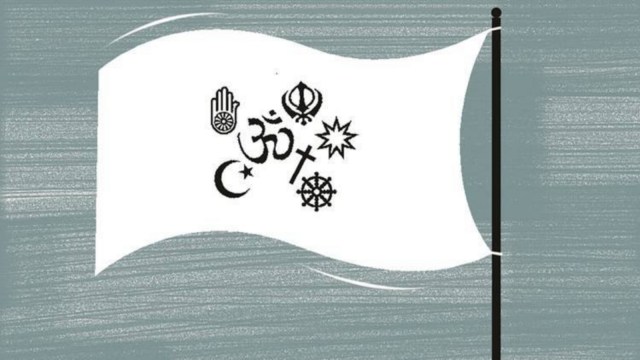
When the Supreme Court or a High Court strikes down a single provision of an Act passed by Parliament, it is, at the least, a rap on the knuckles of the government and parliamentarians. When a Bill is opposed on the ground that provisions of the Bill are violative of the provisions of the Constitution, yet the government pushes through the Bill in Parliament, and it is eventually struck down, it is nothing less than a slap on the face of the government. Consider a worse scenario: the Bill is opposed when it is introduced in Parliament and it is referred to a Joint Parliamentary Committee; several members of the JPC write a dissent note arguing, among other grounds, that Parliament is not competent to pass such a Bill; yet the government brushes aside all objections and passes the Bill; and, later, provisions of the Act are struck down or stayed by a Court. It is the worst humiliation for the government and a reflection on the Ministry of Law.
Please see my column Malice Toward Muslims (Indian Express, April 6, 2025). I had referred to several questions raised in Parliament. There were no answers from the government, only obstinate defence of the clauses of the Bill. Thankfully, the Supreme Court has given the interim answers to our questions:
The Supreme Court heard arguments for three days on the application for interim stay of the Waqf (Amendment) Act as a whole or, at least, the key provisions. It was unusual for the Court to devote three days to a stay application. Further submissions will be heard when the case is listed for final arguments. In the meanwhile, knowing the character of this government, it will nurse its wounds and plot further assaults on minorities in pursuance of its Hindutva agenda.
Malice is writ large on the face of the Waqf (Amendment) Act. If the government were to observe Article 26 of the Constitution scrupulously,
‘every religious denomination or any section thereof shall have the right — to establish and maintain institutions for religious and charitable purposes; to manage its own affairs in matters of religion…’
Any person truly interested in preserving and protecting the multi-ethnic and multi-religious character of the country — especially the Hindus — should fight against the Waqf (Amendment) Act.
The best estimates of 2025 place the Muslim community at 202 million and the Christian community at 32 million of India’s population. While Hinduism is the oldest religion, Christianity and Islam have the largest following in the world. We may believe that we are secular and tolerant, but the world will view India through the prism of India’s laws, government actions, and the people’s social behaviour. The passage of the Waqf (Amendment) Act has diminished India in the eyes of the world.